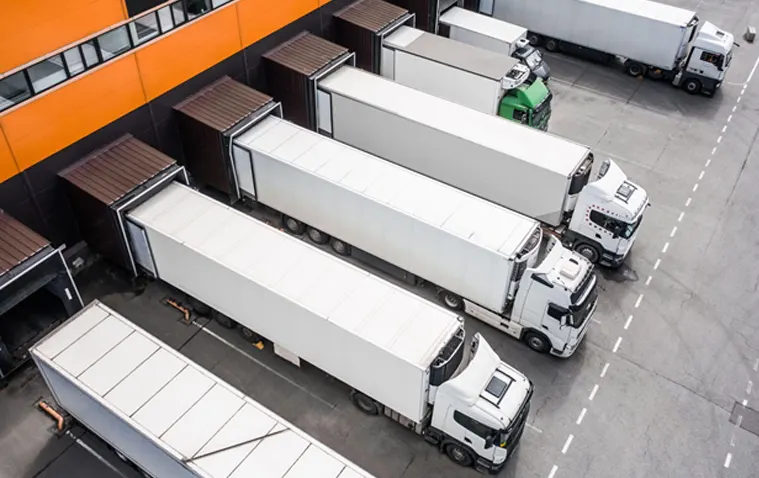The digital economy may continue to conquer new heights, but some of the biggest benefits of digital in industries like manufacturing can be realised only if their back-end physical infrastructure also undergoes innovative upgrades. Manufacturing was selected specifically to highlight this scenario because it is one of those sectors which has the largest logistical requirement for end-to-end operations, which directly relates to their physical operations footprint.
Worldwide eCommerce sales are expected to touch figures close to USD 4.921 trillion in 2021. Though having a challenging time due to the pandemic, physical retail too will have considerable growth in the coming years by leveraging blended and hybrid experiences to satisfy consumer demands. Irrespective of whether the retail industry achieves milestones in the physical or online dimension, the manufacturing supply chain will experience pressure like never before. Manufacturers need to deliver on promises to merchants and retail stores at competitive prices without delays. To achieve this, they need raw materials and other resources to be available at their facilities without any disruption and at the fastest pace, and the end products delivered seamlessly to their retail partners.

While marine and air freight logistics are witnessing increased action, the real challenge in achieving seamless supply chain efficiency for the manufacturing sector is to transform the last mile connectivity inland. This is a domain ruled by trucks of all sizes and manufacturers need to have a seamless truck management capability to enable better logistical efficiency in their facilities. While IoT and exorbitantly priced technology initiatives in this scenario may not be possible for all manufacturers to implement, it doesn’t mean that there isn’t any technology innovation available for manufacturers to leverage. The best answer to solving the fiasco of truck management is to empower automation.
Automation in truck management can help manufacturers leverage numerous benefits that can help improve real-time accuracy within their facility logistics operations. Using a combination of RFID or BLE 632 modules, manufacturers can streamline vehicle movements, set schedules for different facility access, and eliminate delays and productivity slowdowns considerably.
Let us explore the top 4 key possibilities:
Autonomous Data Entry
A large manufacturing facility may witness thousands of truck movements in a day. Keeping track of what inventory or resources are being carried or loaded into each truck can be a nightmare if it is done manually. However, with a truck management automation solution, drivers of trucks can be provided with a pre-filled electronic shipment record, which upon scanning at the entry or exit point can capture the information and update it with the manufacturer’s ERP system.
Eliminate Entry and Exit Bottlenecks
With a truck management automation system, only authorised vehicles have permission to enter the manufacturer’s premises. Besides serving as a security measure, it also doubles up as an agent of speed. Once approved through RFID scan authorisation, a truck can move into its allocated bay and exit smoothly without any manual paperwork – all shipment information, validation permits, etc. can be generated electronically and embedded in the RFID of the truck. It helps in preventing hassles at checkpoints within the premises.
Improved Bay Allocation
One of the main perils at manufacturing facilities is the smooth allocation of bays for trucks when they come in for the pickup of finished goods or for dropping in supplies. Finding the right bay, gauging its availability, and ensuring faster and connected service from the bay for either delivery or pickup is key to ensuring a faster experience at the bay. This is where manufacturers can leverage technology to make a difference. They can track the availability of each bay in real-time. When trucks with embedded RFID tags or BLE identifiers pass the entrance, they can be easily directed to the right bay that is free to handle the cargo from or to the truck. It can also serve as a timekeeper for the time a truck utilises a particular bay and alert concerned stakeholders to take action if unusual delays in moving out from the bay are noticed.
Cost Savings
With lower bottlenecks, faster vehicle movements, and more effective utilisation of resources spent within the premise by trucks, manufacturers can save considerably on manpower utilisation, time as well as on parameters like fuel consumption. This will add to the overall cost efficiency initiatives followed by companies to offset unwanted expenditure during challenging times such as during the pandemic.
Truck management automation offers manufacturers an opportunity to spruce up their efficiency and eliminate one of the biggest traditional challenges they face in facility operations. By leveraging modern digital solutions, manufacturers can redefine the pace at which they handle the logistics environment for their production facilities.
Get in touch with us to explore more about enabling a highly efficient and automated truck management capability in your manufacturing business.






